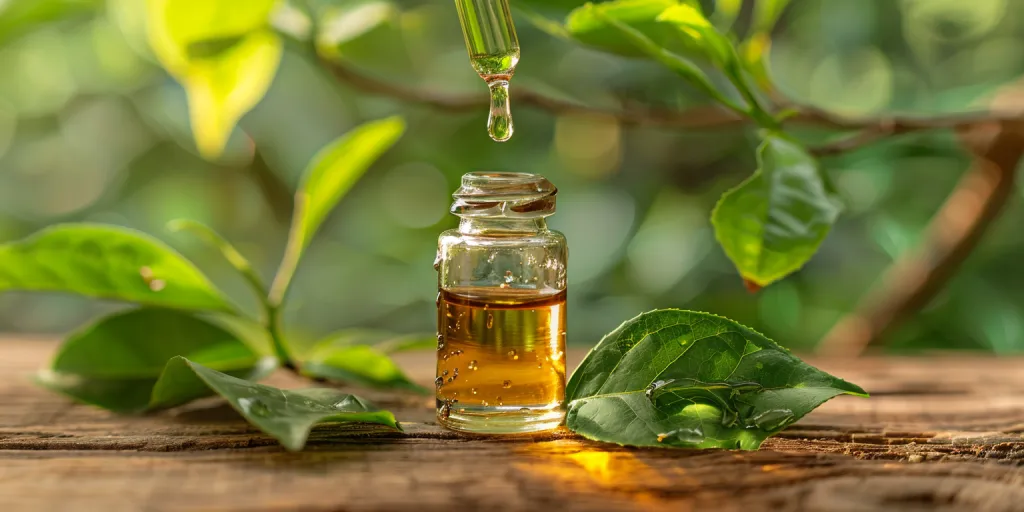Manuka Oil is a versatile, natural oil that is commonly used in the beauty and personal care sphere, and for good reason. Derived from the Manuka Tree which is native to New Zealand, it can be utilised as an effective essential oil. In this article, we shall explore the essence of Manuka Oil, highlighting the benefits that it possesses, the aspects in which it can be utilised in skincare, how it compares to other essential oils, how you can choose the right oil, and the common misconceptions surrounding this extraordinary elixir. Follow along as we unravel the secrets of the extraordinary Manuka Oil, guiding you through its versatile role in beauty and personal care routines.
Table of Contents:
– Benefits of Manuka Oil
– Manuka Oil in Skincare
– Manuka Oil vs. Other Essential Oils
– Choosing the Right Manuka Oil
– Common Misconceptions about Manuka Oil
Benefits of Manuka Oil
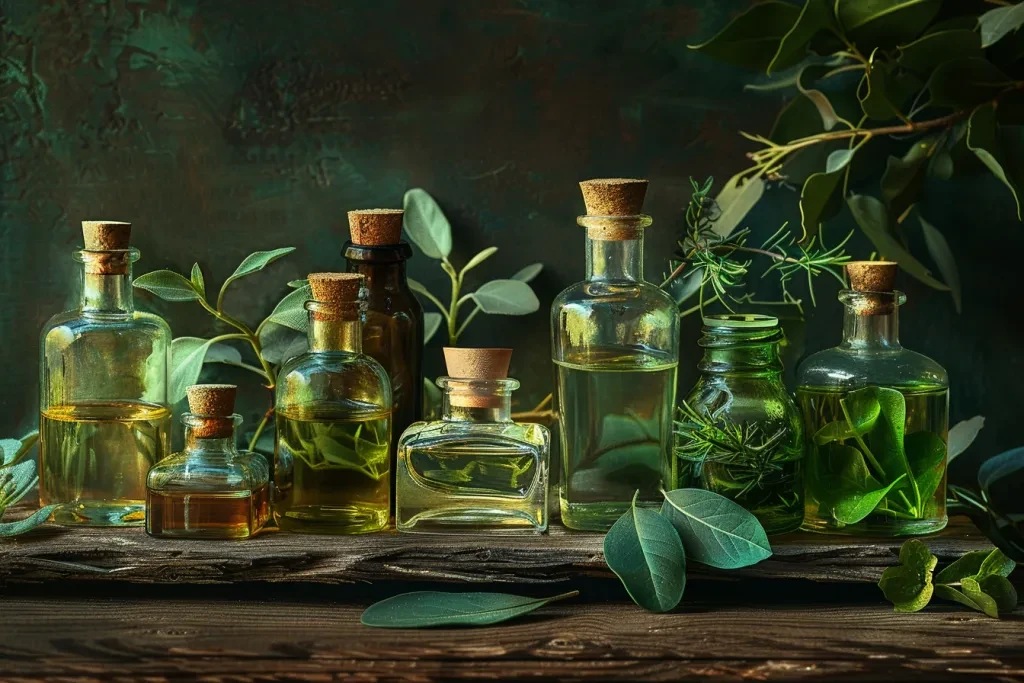
Manuka Oil is known to be highly antimicrobial on bad bacteria and against fungi, so it helps the body without drying out the skin or using harsher forms of treatment, it also helps calm inflammation and promote healing of the skin. Antioxidants are precious in skincare, and manuka oil has a high antioxidant content so it can also help protect against the constant stress from our environment.
It is also effective as an antimicrobial, anti-inflammatory and acne-reducing agent, with the added bonus of reducing redness and calming the skin. What’s more, Manuka Oil is an effective emollient, able to hydrate the skin and ensure it doesn’t dry out, which is an important part of maintaining healthy, naturally elastic skin. All these benefits make Manuka Oil an incredibly versatile choice on its own or as part of your daily skincare routine.
Because of its deep penetration on the skin, it can be added to your daily beauty routine to improve the texture and appearance of the skin. Whether used in its raw form or as an active ingredient in skin creams and skin care lines, Manuka Oil is a great addition to achieve and maintain healthy glowing skin.
Manuka Oil in Skincare
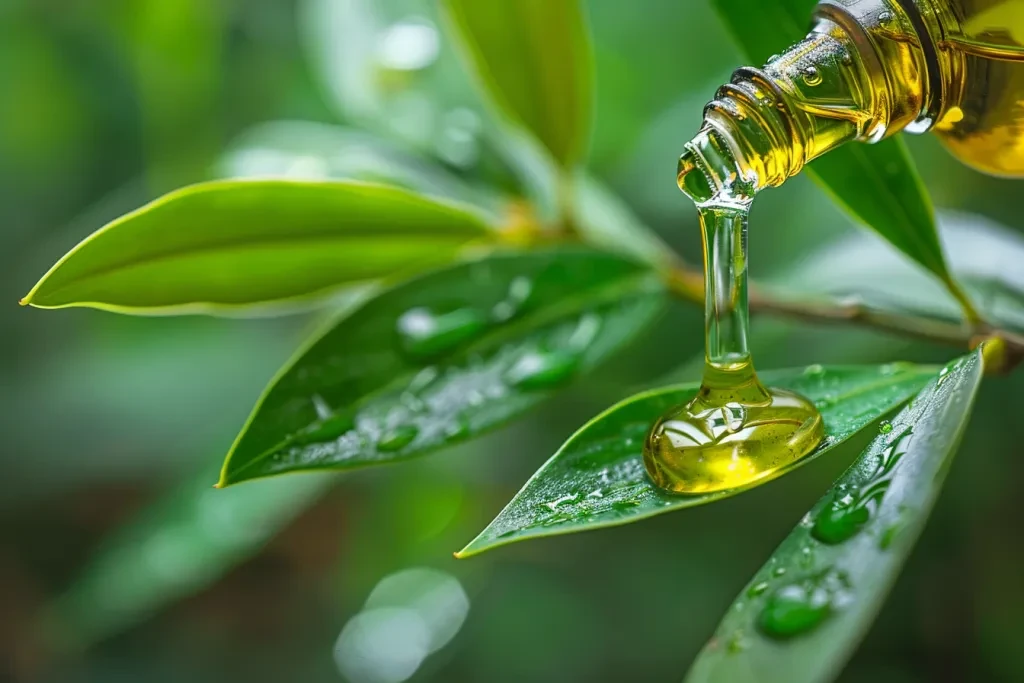
Used in facial cleansers, moisturisers, serums, masks, and more, Manuka Oil can be incorporated into cosmetics for all skin types, including sensitive. Manuka Oil’s antimicrobial and soothing properties are enhanced when incorporated into skincare products, making it an excellent ingredient for more effective, healing formulations.
DIY skincare lovers also prize Manuka Oil because it is so easy to add to homemade beauty recipes. A drop in a face mask or spot treatment, or a few added drops to a soothing body oil will turn a sensible homemade recipe into a potent skincare product. It is natural and non-aggressive on the skin, which makes it a preferred choice for those who like to limit their exposure to synthetic chemicals.
Not to mention Manuka Oil being used in aromatherapy, where its pleasant smell can be relaxing and soothes mental stress. It contributes to the well-being of those who use it and is a holistic beauty treatment because of both the care it gives to the skin and to the soul.
Manuka Oil vs. Other Essential Oils
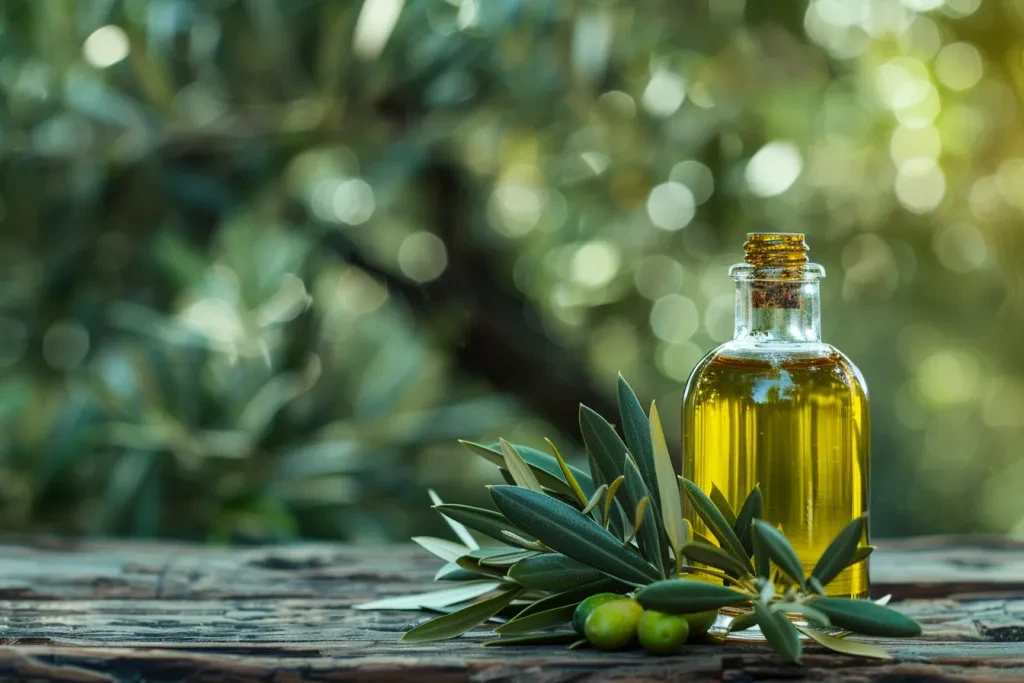
Many essential oils have great health and beauty benefits, but Manuka Oil is special not just for the quality of its ingredients, but also for its strength. It is our oil with the highest β-t the essential oils market, thanks to which it exhibits strong antimicrobial activity against a broad range of pathogenic microorganisms. The potency of its natural antimicrobial and antibacterial action, even against very persistent and hard-to-treat bacteria and fungi, makes it an excellent addition to skincare treatments of many types.
Furthermore, Manuka Oil is less prone to skin irritation than other essential oils, making it suitable for people with sensitive skin who are liable to develop reactions to more potent oils. This milder nature doesn’t make it any less useful, allowing it to be employed over longer periods of time without the accompanying dangers that might be associated with it.
Beyond this, the sustainable and ethical harvesting of Manuka Oil deserves consideration. The Manuka tree is native to New Zealand, and prudent harvesting translates to responsible use of natural resources and the upkeep of native communities. This factor of Manuka Oil addresses the environmental concerns of the modern consumer, who champions ethical and sustainable beauty products.
Choosing the Right Manuka Oil
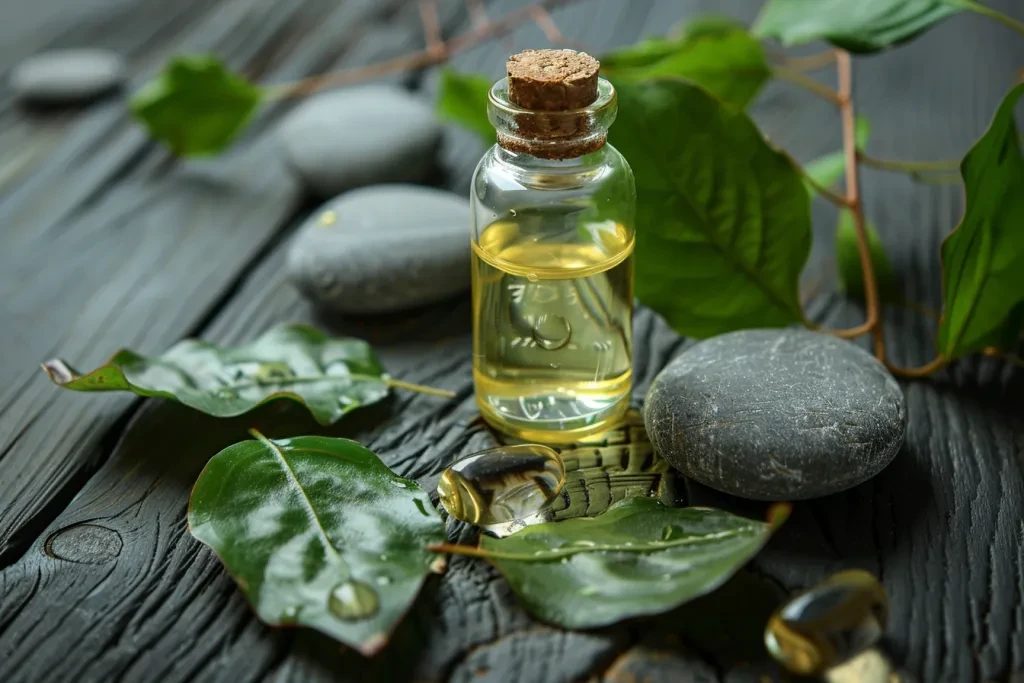
Make sure to buy and use only pure, unadulterated Manuka Oil, originating from New Zealand. Pure Manuka Oil made from high-grade Manuka should contain the botanical name (Leptospermum scoparium), the extraction process and the % of the key chemical compounds.
Moreover, considering the concentration of Manuka Oil in skincare products is also important. The higher the concentration of Manuka Oil in skincare products, the better the therapeutic effect. However, for daily use, it might be sufficient to use products with a lower concentration and a more affordable price.
Finally, Manuka Oil quality and safety can be ensured through certification and testing. Certification by independent and reliable organisations guarantees the oil meets the quality standards required, while testing for purity and potency ensures therapeutic efficacy. For consumers, choosing Manuka Oil with these certifications is essential in making informed purchasing decisions.
Common Misconceptions about Manuka Oil
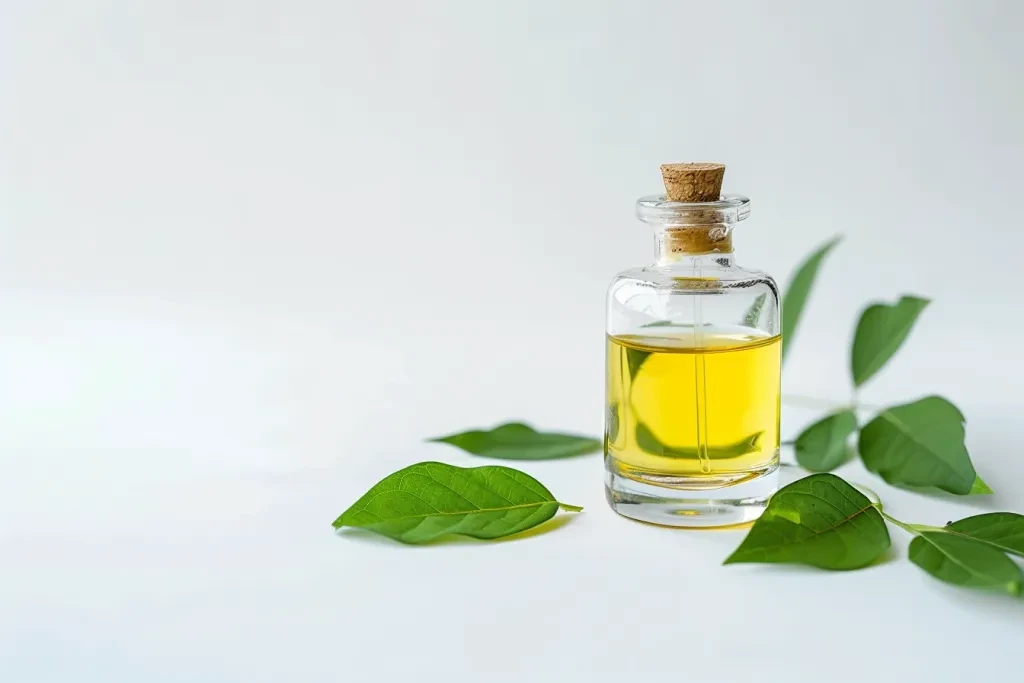
Despite its increasing popularity, there are several myths surrounding Manuka Oil that can really confuse people. For example, there is the opinion that all Manuka Oil is the same, wherever it comes from. In fact, the quality of Manuka Oil can differ greatly depending on the geographical location of its birth, as well as the conditions in which the Manuka tree was grown.
One common myth is that Manuka Oil is only used for skin conditions, but while studies have shown that Manuka Oil is useful for skin health, its many more applications include hair wellness, wound healing and aromatherapy. One common misconception is that Manuka Oil is only used for skin conditions, but while studies have shown that Manuka Oil is useful for skin health, its many more applications include hair wellness, wound healing and aromatherapy.
Finally, people seem to believe in the myth that Manuka Oil can replace all other skincare products. While it is a potent ingredient and has properties that can benefit the skin by itself, Manuka Oil should be only one element in your skincare routine, not your whole routine. It is a part of a holistic approach to beauty and self-care and should be enlisted to help other products and practices work toward their full potential.
Conclusion
Manuka Oil is a botanical treasure trove with antimicrobial, anti-inflammatory and soothing attributes that can enhance topical beauty and personal care. When selecting the correct Manuka Oil and using it appropriately in beauty regimes, its potential can be mobilised. With increasing appreciation for the bounty of nature’s ingredients, such as Manuka Oil, endeavours to treat them knowledgably, with respect and sensitivity to sustainability and ethical issues are important.
